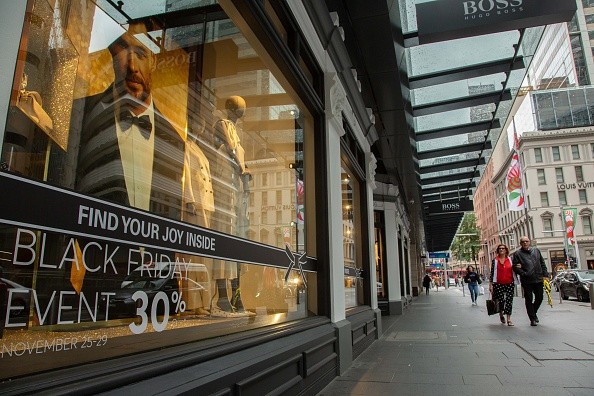Black Friday has come and gone, and people certainly bought a lot of interesting pieces of tech for this year's edition.

Digital Trends reports on the top-selling tech for Black Friday 2021, and they're a mix of a lot of different pieces. For one, a lot of people bought instant pots, air fryers, and even hoverboards.
The day after the holiday, the shopping extravaganza continued and saw Apple AirPods, iPads, VR headsets such as the Meta Quest 2 (formerly known as the Oculus Quest 2), and TVs from Vizio, TCL, and Samsung fly off the (largely digital) shelves.
Nothing seems out of the ordinary based on these tech items. But apparently, this year's Black Friday sales numbers weren't as crazy compared to last year.
ABC News reports that sales for Black Friday 2021 actually dipped for the first time ever. Total sales reached $8.9 billion, which is down from 2020's record-high revenue of $9 billion.
Vivek Pandya, who works as lead analyst for Adobe Digital Insights (the ones who first announced the sales figures), stated that this year's Black Friday proves that shoppers are being more strategic in their shopping.
Pandya says that it looked like people were buying a lot earlier in the season, and are being "flexible" when it comes to their spending in order to get good deals.
To round up the list of Black Friday sales this year, people also largely bought a lot of games and gaming gear. Among these was the Nintendo Switch and "Spider-Man: Miles Morales" for the last and current-gen PlayStation consoles, reports The Verge.
What Caused The Slight Dip In Black Friday Sales?
By now, it is no surprise that the global tech industry has been hit hard by the COVID-19 pandemic. Specifically, several analysts are blaming the ongoing semiconductor shortage.
As per the original report by The Verge, global supply chain problems have been problematic for retailers. There simply isn't enough stock to go around, and this was allegedly evident with the massive 124 percent increase in out-of-stock messages since January of last year.
Out of everything that could have been affected by constrained supply chains, appliances and electronics are the hardest-hit of them all.
Looking Ahead
Some may say that the dip in Black Friday sales figures isn't that much, but it's still a dip. So, are things bound to improve?
When talking about tech, it's not looking too good. Even Big Tech bigwigs like Intel CEO Pat Gelsinger are saying that the chip shortage could last until 2023. According to him, there won't be a good balance between supply and demand until that time, which could once again affect Black Friday sales for the next two years.
For now, a lot of big-name semiconductor companies are doing everything they can to alleviate the supply constraints. TSMC and its contemporaries, for instance, are building new fabs in the hope of bringing supply back up to where it used to be.
Related Article : TSMC is Building a New Chipmaking Plant in Phoenix, Arizona to Help With Ongoing Chip Shortage
This article is owned by Tech Times
Written by RJ Pierce
ⓒ 2026 TECHTIMES.com All rights reserved. Do not reproduce without permission.




